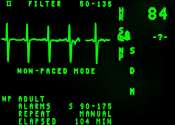What happens when babies with heart defects become adults?
More than 90% of babies born with heart defects survive into adulthood. As a result, there are now more adults living with congenital heart disease than children. These adults have a chronic, lifelong condition and the European ...
Aug 29, 2020
0
8








